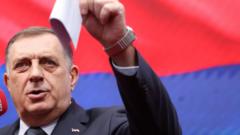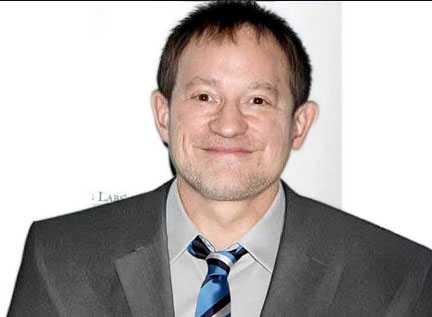Milorad Dodik, the leader of the Bosnian Serb region Republika Srpska, has been sentenced to one year in prison for defying orders from the international High Representative overseeing Bosnia's peace process. Though the ruling imposes a significant penalty, Dodik downplayed the conviction during a rally in Banja Luka, urging supporters to remain calm and cheerful in the face of the verdict, which he derided as "nonsense."
The case against Dodik symbolizes a prolonged conflict between him and the current High Representative, Christian Schmidt, who holds authoritative powers in Bosnia, including the ability to annul laws and dismiss officials. In a country still grappling with the aftermath of the 1990s Bosnian War, the role of the High Representative has diminished over the years, aiming for a self-sufficient governance system. However, political leaders have failed to collaborate effectively, leaving the country plagued by economic stagnation and widespread discontent with the ruling class.
Ethno-nationalist leaders dominate the political scene, with Dodik, leader of the SNSD party, frequently threatening the secession of Republika Srpska. His government's actions have included attempts to distance the region from Bosnia's national institutions, prompting Schmidt to annul secessionist laws and warning of the potential for renewed conflict.
Dodik's defiance led to his prosecution, with demands for a five-year prison sentence and a ten-year ban from public office. Despite his conviction, he has signaled the possibility of further legislation aimed at scaling back the recognition of national authority in Republika Srpska. His fortunes, however, are complicated by international sanctions from the US and UK tied to corruption allegations and links to Russia, placing him in a precarious situation.
Analysts suggest that Dodik may face increased challenges ahead, particularly as his financial resources dwindle. The ongoing legal and political strife continues to underscore the difficulties faced by the people of Bosnia and Herzegovina, highlighting the gap between political leadership and the socio-economic stability long promised to its citizens.



















